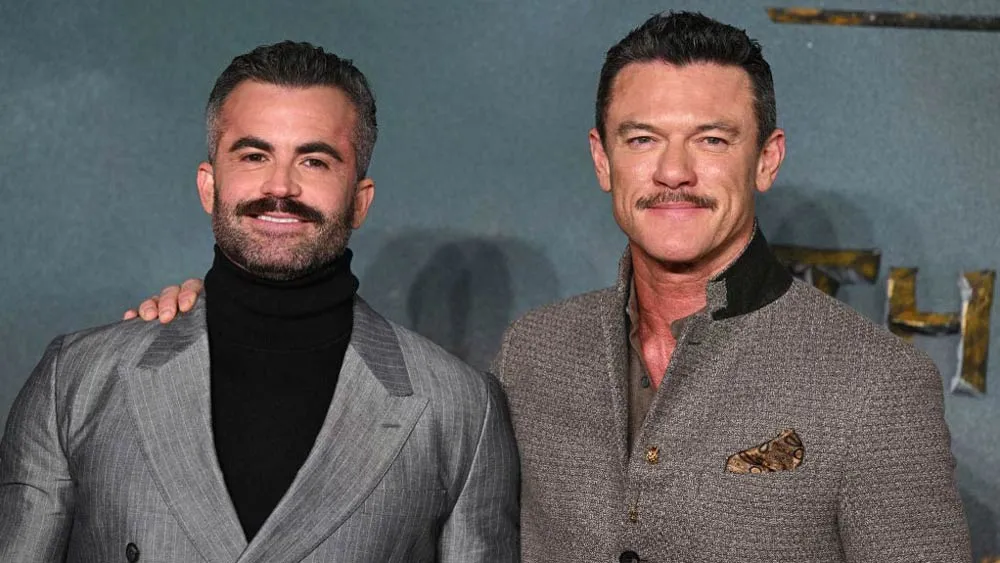March 29, 2013
In Marriage Debate, Both Sides Agree on One Thing
Steve Weinstein READ TIME: 3 MIN.
In the just-completed oral arguments made before the nine justices of the U.S. Supreme Court, both conservative and liberal, pro- and anti-marriage equality pundits, activists and everyone else are agreed on one point, at least: the lawyer making the case for traditional marriage was badly outgunned by his opponents.
Rather than making the case for retaining Proposition 8, Charles Cooper botched it. When he was asked why the plaintiffs had standing, he punted. This is a vital procedural question, because, if the justices don't believe that the people who are challenging the unanimous rulings of every court so far, then that would be an easy out for the more conservative justices effectively to overturn Proposition 8 by letting the rulings stand without actually saying they approved of what that means about marriage equality.
If that happens, the 2008 referendum denying marriage to same-sex couples in California would be stricken from the books. Since there are couples legally recognized because they made the narrow window between the first court ruling and the closing of the gate, it would be extended to all.
Cooper could not show why the plaintiffs had a direct interest in denying marriage to someone unknown to them personally. While it's true that this would have been difficult to prove for any lawyer, Cooper did an especially bad job.
To take just one other outstanding example, for his main argument for restricting marriage, he resorted to procreation. Marriage, he said, was an institution devised to encourage procreation. Since same-sex couples cannot procreate by themselves, therefore they are not entitled to it.
One would think that, even if Cooper doesn't have the inherent ratiocinative abilities to follow his logic through to its obviously ridiculous conclusions, he might at least have read some of the thousands and thousands of comments made by people on message boards all over the Internet.
If he had, he would have read the arguments put forward so many times. Marriage, of course, has never been merely or even primarily for procreative purposes. Men and women have always done quite well procreating without sanction of marriage. Like their counterparts, same-sex couples can adopt or use a surrogate or a donor.
The lawyers for the other side didn't even have to bother to made the the most obvious counter-argument: The justices themselves did it for them. Justice Kagan asked whether, in that case, male-female couples well past child-bearing age should not be allowed to get married.
The same, of course, could be asked when one or both partners is infertile; when they choose not to have children; when all of their children die in childbirth or in infancy; and on.
Even if Cooper hadn't been so incompetent, even a better lawyer probably would have been spooked by going up against David Boies and Ted Olson, the lawyers arguing for marriage equality.
One of the many reasons why these cases are being followed so eagerly by the legal community is not only because they will set important precedents about state v. federal rights and restrictions; how far courts can go in voiding public will when they see it as targeting a specific group; or whether elected officials acting in an executive function (here, no less than a Republican and Democratic governor of California, Arnold Schwarzenegger and Jerry Brown; and the president of the United States, Barack Obama) can decide not to argue for a law they disagree with even though they were sworn to protect and defend that law.
Lawyers are fascinated and thrilled to see two of the sharpest legal minds in the country collaborate and get a glimpse into how their steel-trap minds work.
There are other reasons that make the team of Boies and Olson so fascinating. They were the lead opponents in what may have been the last case argued before the Supreme Court before this one with such drama and national impact, Bush v. Gore, which decided the contested 2000 presidential election.
Then there's the "road to Damascus" conversion of Olson. Known as one of the most prominent, respected and profound thinkers on the Right, Olson and his wife, who died on 9/11, were leaders of the New Right and the leading lights of Washington's GOP elite.
That Olson, after careful thought on the matter, made the personal decision that marriage equality was something that jived with his conservative beliefs, may be nearly as important in swaying much of the public as any other factor.
In any event, it has been fun to see how quickly the anti-marriage equality forces have collapsed in the past few days. From confidently predicting that America would never accept same-sex marriage, they have been reduced to idle speculation that sometime in the future, there will be a "backlash."
Good times.
Steve Weinstein has been a regular correspondent for the International Herald Tribune, the Advocate, the Village Voice and Out. He has been covering the AIDS crisis since the early '80s, when he began his career. He is the author of "The Q Guide to Fire Island" (Alyson, 2007).


